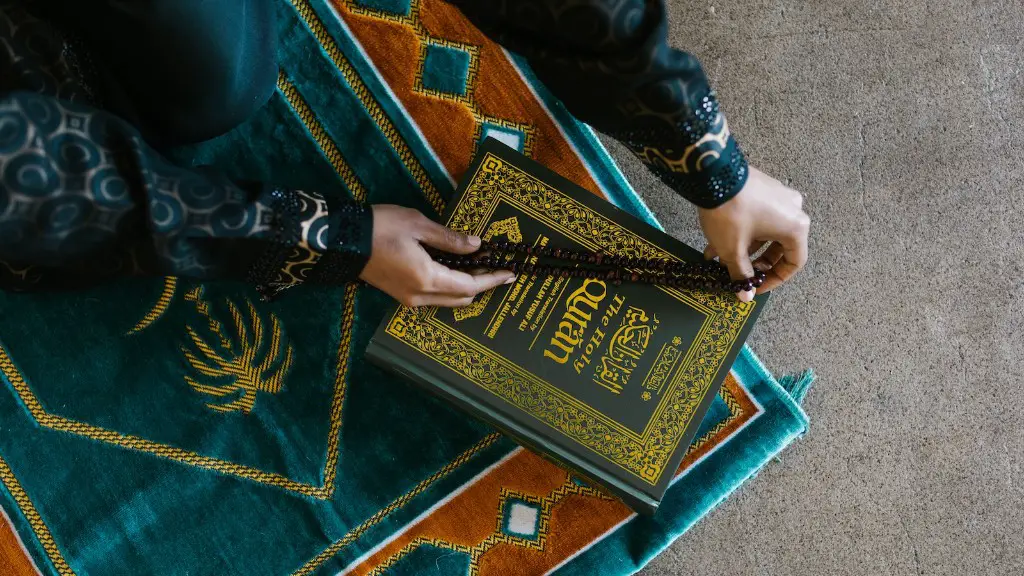It has been said that education is the cornerstone of all great civilizations, and this is certainly true of Judaism. Education is not only important in Judaism, but it is actually one of the core elements of Jewish life. The Jewish faith puts a huge emphasis on acquiring knowledge and being able to apply that knowledge in a meaningful way, which is why education is so vital for the Jewish people. Here we take a look at why education is such a cornerstone for Jewish life.
Firstly, there is the philosophical side of why education is so important in Judaism. According to the teachings of the Hebrew Bible, it is important for Jews to learn in order to understand God’s laws, so that they may live according to them. Education also teaches Jewish people about their history; this helps to instill a sense of identity and belonging among Jews, which reinforces the importance of education even further.
Aside from this philosophical side to education in Judaism, there are also practical benefits. Firstly, learning enables Jews to become valuable members of society and make a can-do contribution to communal life. For example, the Jewish people have a long history of scholarship and many Jews have gone on to make incredible contributions to the world of science, medicine and technology, something which would not have been possible without a good education.
On a deeper level, education allows Jews to think critically and understand the world more deeply, enabling them to reach a more meaningful understanding of the Divine. Without a good education, it would be difficult to reach the heights of spiritual enlightenment that many Jews strive for. Furthermore, education also helps to bridge divides between cultures and beliefs, something which is beneficial both to individuals and wider society.
It is also important to note that education is not just about learning facts or figures; it is about the whole process of becoming educated. This process involves learning new skills, challenging assumptions and deepening one’s understanding of a particular subject. For the Jew, this process of education is essential in cultivating a sense of morality and a connection to their faith.
Education in Judaism has a practical and a spiritual side to it. The practical side enables Jews to contribute to society and make a positive difference in the world, while the spiritual side allows them to deepen their understanding of the Divine. Ultimately, education is vital to the success and development of the Jewish people, and it is something which is taken very seriously by the Jewish community.
Echoes In Education
Education within the Jewish tradition has been advanced and evolved by its religious community for centuries. Through different key figures such as the prophets, rabbis and even Jesus, the teachings of the religion are passed down through the generations. Education became a cornerstone of Judaism after the fall of the First Temple in 586BC, as the Jewish people began to form a majority in exile. This is why Jewish people always had a constant practice to ensure that no generation would be forgotten, as they sought to keep a strong sense of their identity.
The education within the Jewish religion seeks to instill important ethical values and respect for learning in its different generations, so that the teachings and knowledge passed down can carry on. Through the various learning rituals and methods, such as Torah study, the core values of the religion are deeply rooted and transmitted across all the generations. This is one of the main things that set Judaism apart from other religions, and is also a core value in all schooling among the Jewish community.
For example, in Jewish primary schools, not only is academic content taught, but students are also encouraged to think about religious questions and learn about Jewish life and culture. This two-fold approach to Jewish education ensures that students are grounded in not only the scholarly aspect but also understand how this knowledge ties in with their faith. By having that sense of connectedness and understanding of the teachings and ethics, children can become confident in their values and hence, better able to carry them on as they progress in age.
Lifelong Learning
Learning is not just important to children and teens, however, but is a lifelong endeavour. As the great Rabbi Akiva famously said, ‘you are not obligated to complete the task, but you are not free to desist from it’. This speaks to the sense of duty that Jews have to constantly strive to learn and grow. Throughout their life, Jews are encouraged to regularly attend synagogue and continue their learning by studying the Torah.
This emphasis on lifelong learning is especially important in our modern age. In the age of information, knowledge is more important than ever and those who are able to cultivate a broad, deep and up-to-date understanding of their faith and the world in general, have a greater chance of achieving their goals in life. Yet, it is not just about having knowledge, as the rabbinic saying ‘matan l’rasha be’darko’ (‘The gift of the wicked is in his dark place’) teaches. To truly benefit from knowledge, one must also find a way to use it ethically and responsibly.
This is another important element of education in Judaism. As the great Jewish philosopher Maimonedes said, ‘the highest level of wisdom is when a person combines knowledge and morality’. This combines the two sides of education in Judaism; learning not only for the sake of gaining knowledge, but also for being able to use it in an ethical and responsible way.
In Conclusion
In conclusion, it is clear to see why education is such an important part of Jewish life. Not only does an education help people practically to navigate life and their faith, but it also instills within them important core values and ethics. Learning is much more than just understanding facts and figures; it is a lifelong process of understanding and enlightenment, enabling people to become part of something greater than themselves.
Making An Impact
Education within the Jewish tradition is more than just a source of knowledge, but also a tool to use this knowledge to make an ethical and lasting impact on the world. Jewish culture is full of stories of individuals who have used their knowledge and skills to make a positive difference to society. One particular example that speaks to this is the story of the Baal Shem Tov. The Baal Shem Tov was a Jewish mystic who used the power of his knowledge to serve others and uplift those who were in need.
His teachings of the power of prayer and faith are a testament to the importance of education in Judaism. By learning and understanding his teachings, his legacy has been continued to this day and his influence has been felt for generations. This is a reminder to us all about just how powerful knowledge can be, and how it can be used to make a lasting and significant contribution to the world.
Reinventing Education
In the modern age, education is no longer just about learning facts and figures, but also about being able to think critically, question ideas and find creative solutions to problems. The Jewish faith has always embraced new ideas and concepts, and education is no exception. Today, the Jewish community are finding new and innovative ways to learn, often relying on technology and connecting people through online platforms.
These new platforms enable Jewish people to connect with each other and discuss important ideas, as well as engage in study sessions that bring people from all over the world together. This has allowed the Jewish faith to become more accessible, allowing more people to deepen their knowledge and understanding of the faith, something which is truly inspiring.
Another way in which Jews are reinventing education is through the use of immersive learning experiences. By involving learners in real life scenarios, this allows them to problem solve, using the knowledge and skills they have acquired in a meaningful way. This has not only made learning more engaging, but it has also enabled learners to attain a deeper, more meaningful understanding of the topics they are studying.
Competition and Collaboration
Competition is another part of the Jewish educational system. In many Jewish schools, there is a culture of healthy competition among students, which encourages them to push themselves to put their knowledge into practice and strive to do their best. This competition can take the form of quizzes, debates and public speaking events, all of which help to put the knowledge and ideas of students to the test.
Yet, this sense of competition within the Jewish community should not be mistaken for a lack of collaboration. On the contrary, the Jewish emphasis on education has gone hand-in-hand with the development of a collaborative spirit, something which is particularly evident in religious study circles. Through these kinds of gatherings, Jewish people, even from different religious backgrounds, can come together to learn, share and ultimately, come to a greater understanding of Torah and their faith.
Creating Community
Finally, education is not only important in the Jewish faith for its role in providing knowledge, but also for creating a sense of community. By studying together, Jews are able to connect with each other and help each other in their unique journeys of learning and understanding. After all, it is through our relationships with others that we can gain the most knowledge, stretching our own understanding and deepening our appreciation for the world around us.
Furthermore, education also brings Jews closer to each other, allowing them to form bonds of friendship and helping to nurture an understanding of shared values and ethical behaviour. With such a collective sense of understanding, Jewish people are then able to stand and face the world, confident in their beliefs and knowledge.




